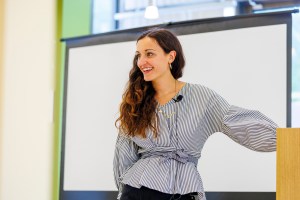Arts & Culture
-
Schlesinger exhibit turns spotlight on largely invisible past
Among the artifacts on display in a new exhibition at the Schlesinger Library are photos of Ainu and Visayan women who were displayed as “living exhibits” at the 1904 St.…
-
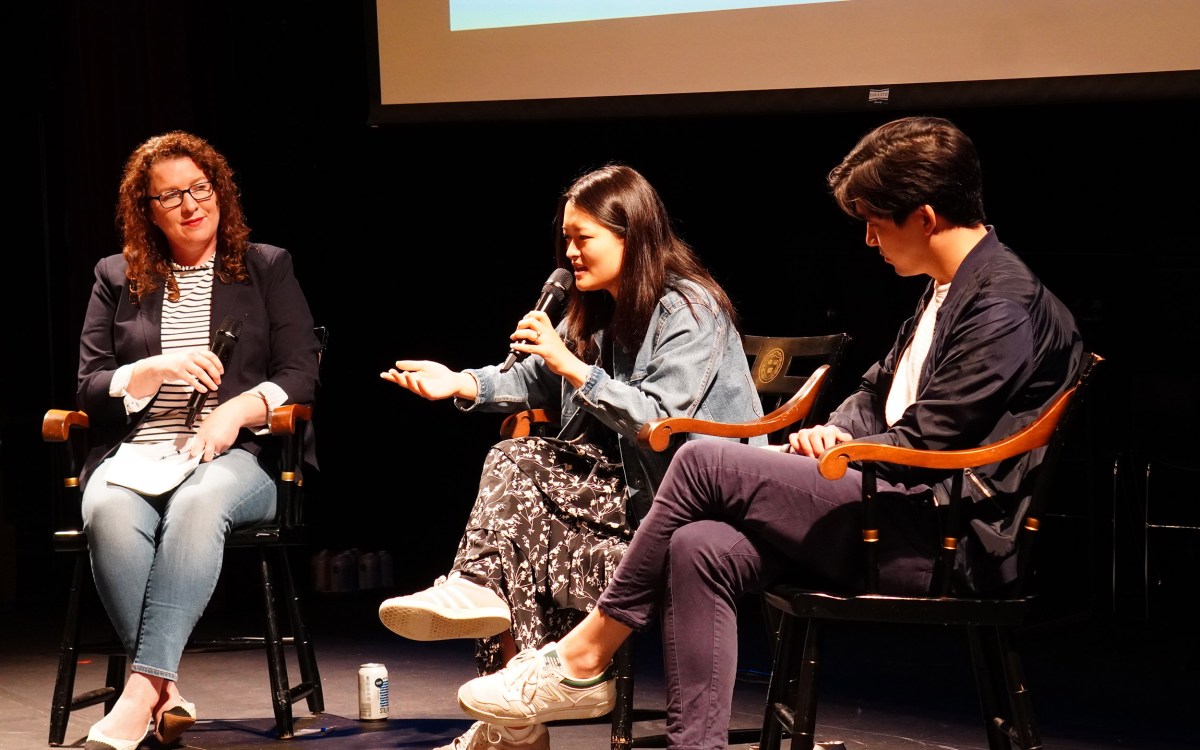
Making creation a career
Alumni in the arts share insights and lifelong impact of campus involvement
-
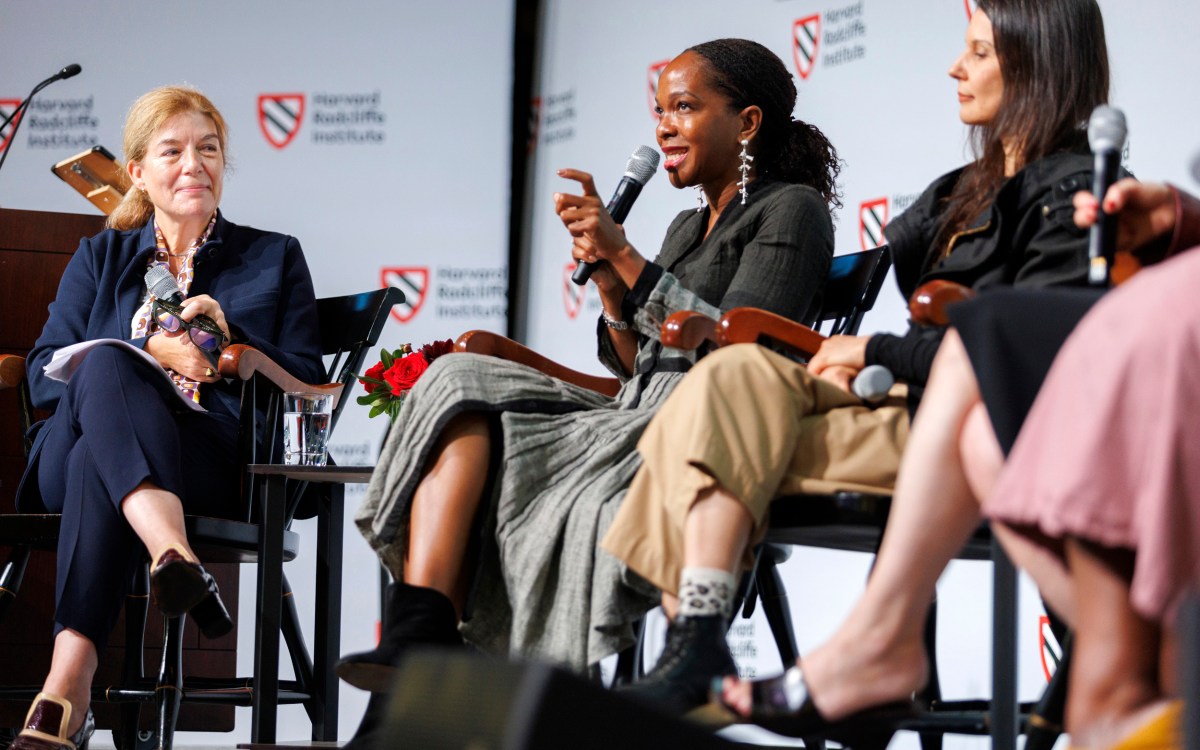
Art and Big Ideas are not strange bedfellows
Both spring from hard questions, benefit from interdisciplinary feedback, former Radcliffe fellows say
-
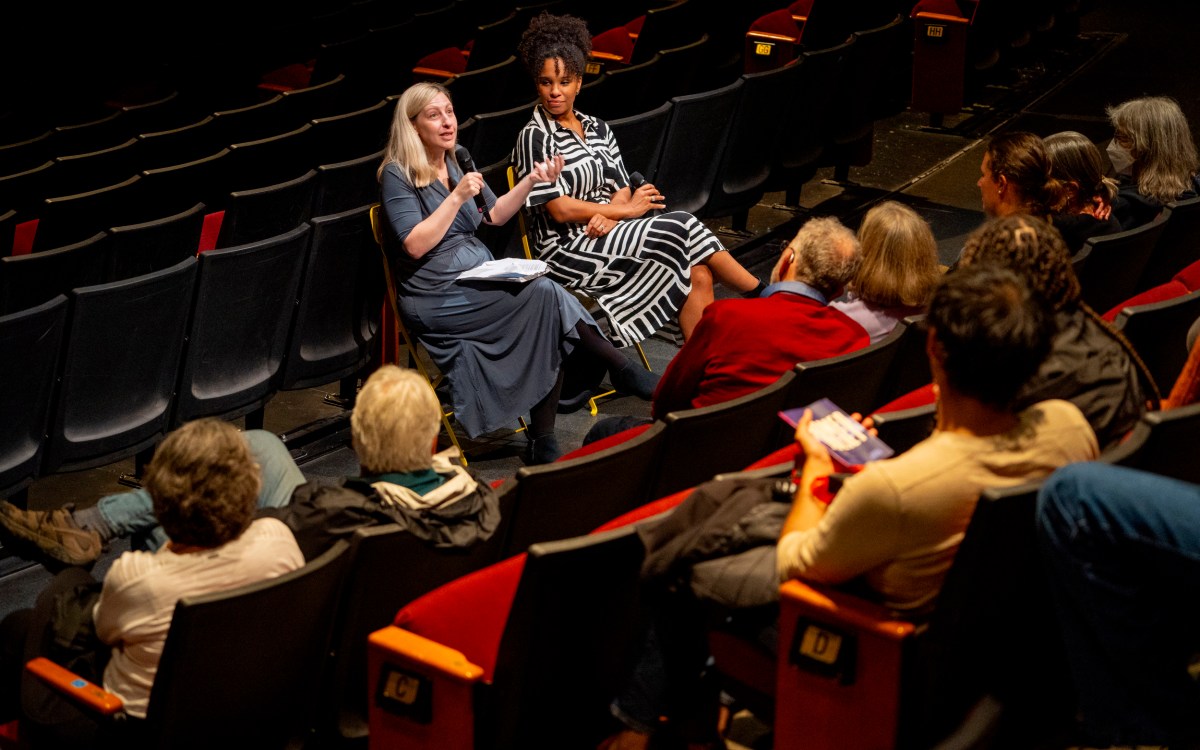
Was Romeo ‘love-bombing’ Juliet?
Globe relationship columnist sorts timeless elements of youth, love, social divisions of 16th-century classic in new A.R.T. production
-
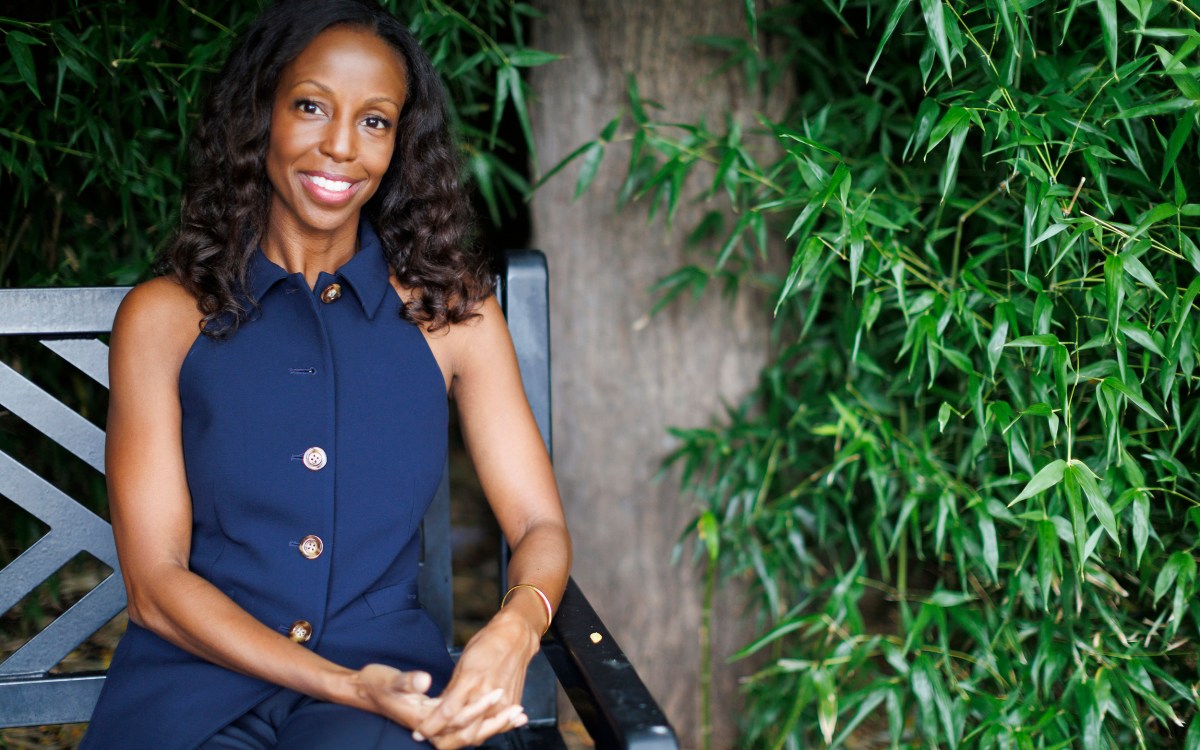
‘Unseen Truth’ shows the real picture behind ‘Caucasian’ ideals
Sarah Lewis explores the false foundation of America’s racial hierarchy in new book
-
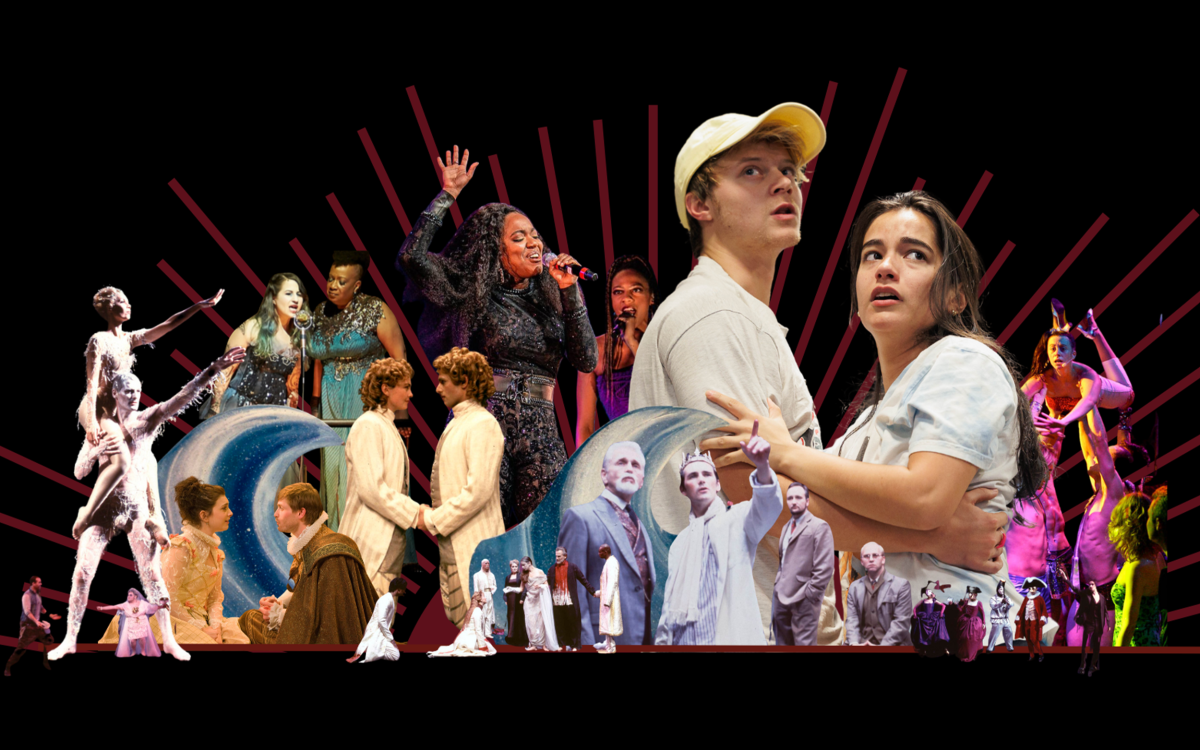
A history of Shakespeare at the A.R.T.
‘Romeo and Juliet’ is latest in long line of productions stretching back to theater’s inaugural staging in 1980 of ‘A Midsummer Night’s Dream’
-
Saving snapshots of history
Four Russian conservators visit the Weissman Preservation Center for 10 days to learn techniques to assess, treat, and preserve rare photos and other treasures.
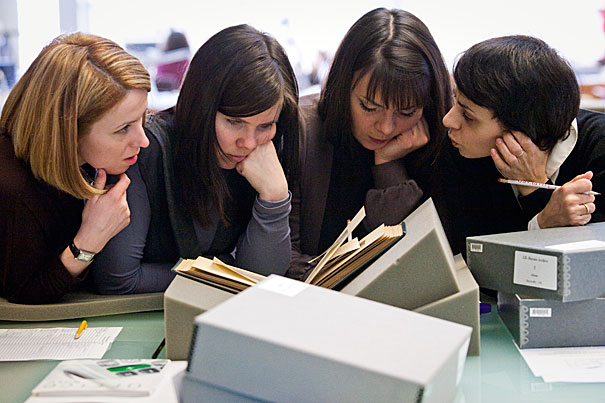
-
The Weissman Center at work
The Weissman Preservation Center, an arm of Harvard Library that recently hosted a group of Russian conservators for training, celebrated its first decade last year.
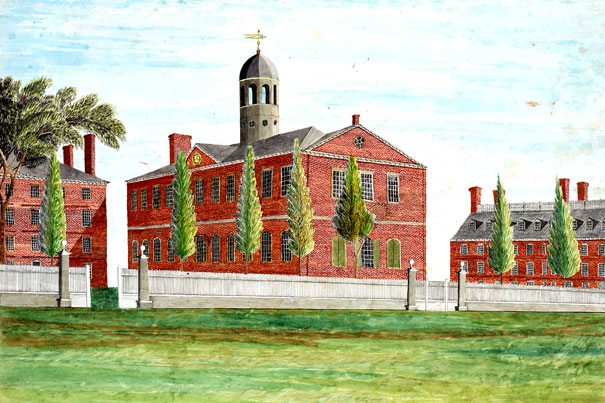
-
A window into African-American history
Commemorating February as Black History Month, this collection of historical and contemporary photographs offers glimpses into the dynamic lives of African Americans over time.
-
Troubled youth
Linda Schlossberg’s debut novel, “Life in Miniature,” depicts a mother’s mental illness and a daughter’s coming of age.

-
In the Light of Evolution: Essays from the Laboratory and Field
Jonathan Losos, Monique and Philip Lehner Professor for the Study of Latin America, edits this collection of essays by leading scientists, including Harvard’s Daniel Lieberman and Hopi Hoekstra, Harvard historian Janet Browne, and many others.
-
Art by degrees
Three Harvard graduates, now practicing artists, bring home lessons learned, along with a quirky exhibit.

-
Scholarship beyond words
Harvard classes and a new journal embrace an emerging wave of doctoral learning beyond the written word that uses film, photo, audio, and other communication channels.
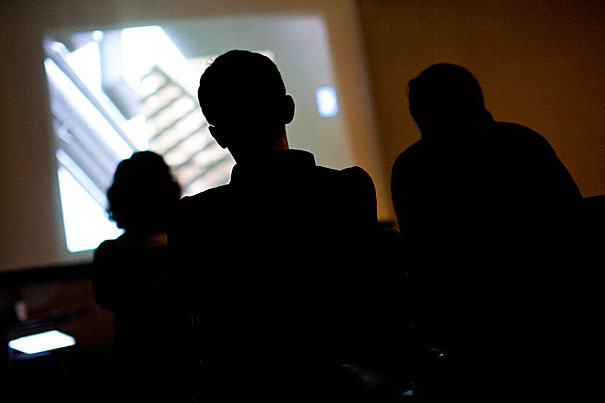
-
Glimpses of screenwriting
Harvard grad Roland Tec, a filmmaker, writer, director, producer, and Harvard graduate, explored the inner workings of his craft during a January arts intensive.

-
An Errant Eye: Poetry and Topography in Early Modern France
Tom Conley, Abbott Lawrence Lowell Professor of Romance Languages and Literatures and of Visual and Environmental Studies, studies how topography, the art of describing local space and place, developed literary and visual form in early modern France.
-
What Is Mental Illness?
Richard McNally, a professor of psychology, explores the many contemporary attempts to define what mental disorder really is, and offers questions for patients and professionals alike to help understand and cope with the sorrows and psychopathologies of everyday life.
-
The master’s chair
Liz Glynn is this year’s Josep Lluis Sert Practitioner in the Arts, a visiting artist position in place at VES since 1986. The idea: welcome a working artist for a week of intense interchange with students.

-
Identity issues
In what many participants called a “historic moment,” scholars from around the world gathered for three days at Harvard to explore issues of race, racial identity, and racism in Latin America.

-
Hide and seek
A new Harvard exhibit aims to challenge how things are categorized by delving into the University’s vast museum and archival collections.
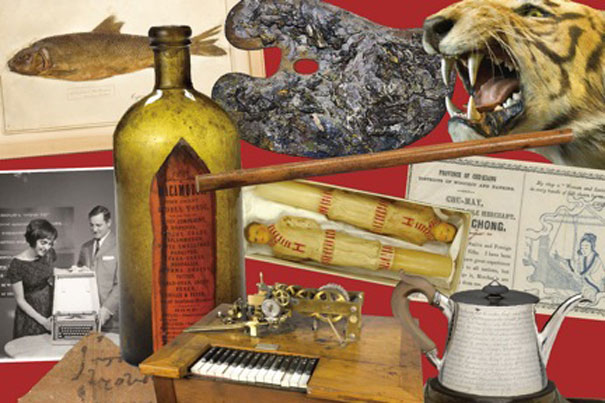
-
American tune
Ethnomusicology graduate student Sheryl Kaskowitz talks about her dissertation on cultural shifts in the meaning of Irving Berlin’s “God Bless America.”

-
Contemporary sounds of Istanbul
Exploring the beauty behind dissonance and her native country, pianist Seda Röder, an associate in Harvard’s Department of Music, uses her new CD to highlight an emerging generation of Turkish composers.

-
Eyes on the stage
Harvard’s Learning From Performers (LFP) program began in 1975 “to facilitate direct engagement between Harvard students and gifted artists.” Today, LFP hosts 15 to 20 virtuosos each year who lead master classes in music, dance, theater, and other performing arts.
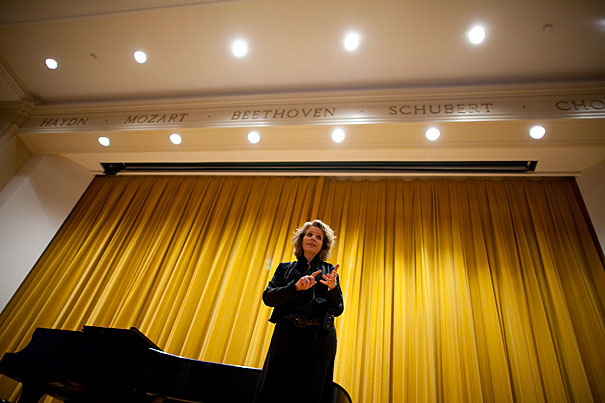
-
Bucky on stage
Inventor and futurist R. Buckminster Fuller, thrown out of Harvard College twice in the early 20th century, returns in the center of a one-man play on the “history (and mystery) of the universe.”
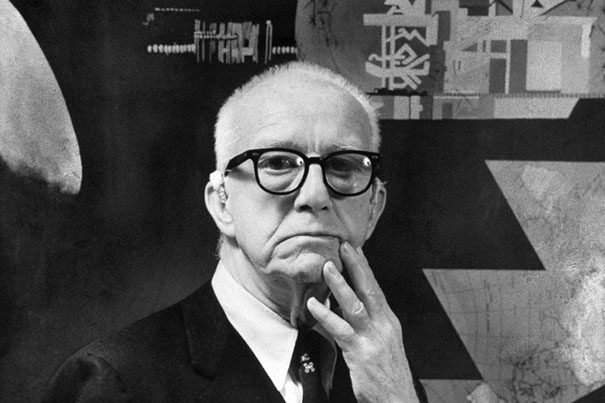
-
Inside Dumbarton Oaks
More people are enjoying the treasures of Harvard-owned Dumbarton Oaks in Washington, D.C., in part because of the opening of new library and museum facilities, and because of fresh efforts to increase connections with Harvard’s Cambridge campus and reach out to political, educational, and cultural leaders in Washington.

-
Art in the making
Barberini Faun, a rare plaster model at Harvard Art Museums, offers lessons in how ancient classical sculpture was restored in the 17th century.
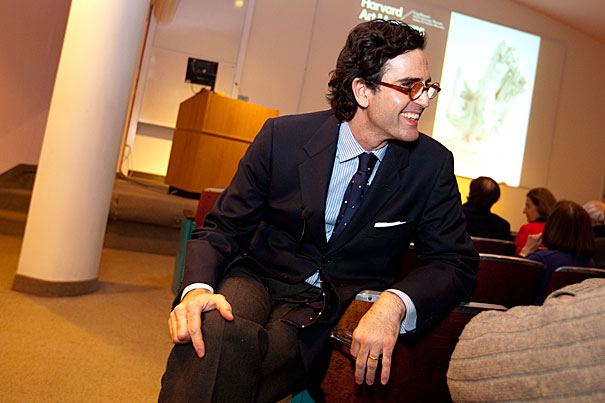
-
The landscape of slavery
Harvard historian and Radcliffe fellow Walter Johnson explored the intersecting landscapes of slavery in a talk at the Radcliffe Gymnasium.
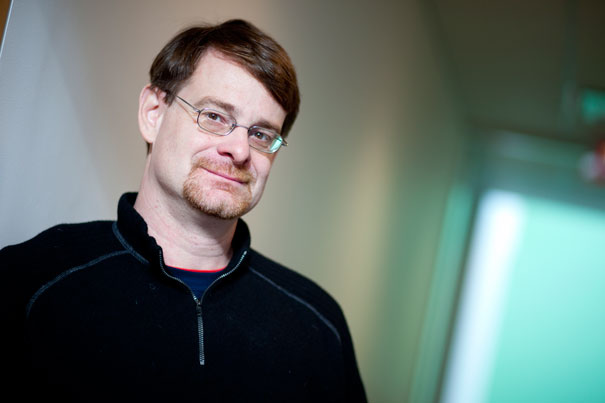
-
With the band
Karen Woodward Massey, director of education and outreach at FAS Research Administration Services (RAS), has always needed a creative outlet from her “right-brain” work. From ingénue roles to a staff cover band, the Grateful Deadlines, one thing remains the same: She has a ton of fun along the way.
-
Students go Dada over project
A group of Harvard undergrads collaborated on period artworks that grace the Loeb’s lobby for the A.R.T.’s avant-garde musical “The Blue Flower.”
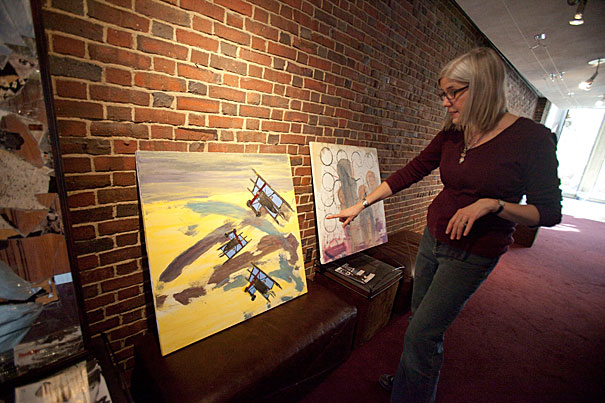
-
The Shock of the Global: The 1970s in Perspective
Disco, drugs, and decadence? Not that 1970s. This book, by Harvard mainstays Niall Ferguson, Charles Maier, and Erez Manela focuses on the decade that introduced the world to the phenomenon of “globalization,” as networks of interdependence bound peoples and societies in new and original ways.
-
Seeing Patients: Unconscious Bias in Health Care
Augustus A. White III, a pioneering black surgeon and the Ellen and Melvin Gordon Distinguished Professor of Medical Education, and contributor David Chanoff use extensive research and interviews with leading physicians to show how subconscious stereotyping influences doctor-patient interactions, diagnosis, and treatment.
-
Unraveling Reconstruction
Professor sifts post-Civil War writings for societal clues that give context to a troubled time in American life.

-
Ye olde information overload
Before digital technology existed, scholars centuries ago beat their desks in frustration over being inundated with data too, according to Ann Blair, author of “Too Much to Know: Managing Scholarly Information Before the Modern Age.”

-
Channeling Carson McCullers
Artists and performers Suzanne Vega and Duncan Sheik, along with Harvard graduate and director Kay Matschullat ’77, discussed their upcoming musical product at one of Harvard’s newest art spaces.

-
Making sense of the truth
Harvard philosophy professor Mark Richard explores the philosophy of language — and loves a good live music show.
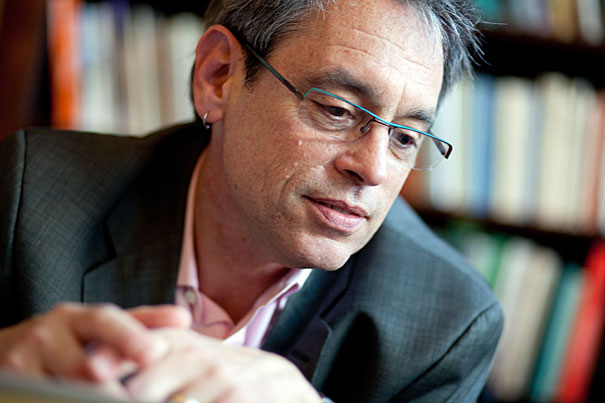
-
Feeling the pinch
Harvard Law School’s Noah Feldman’s gripping history of FDR’s most prominent — and turbulent — Supreme Court justices plays out in his book, “Scorpions: The Battles and Triumphs of FDR’s Great Supreme Court Justices.”
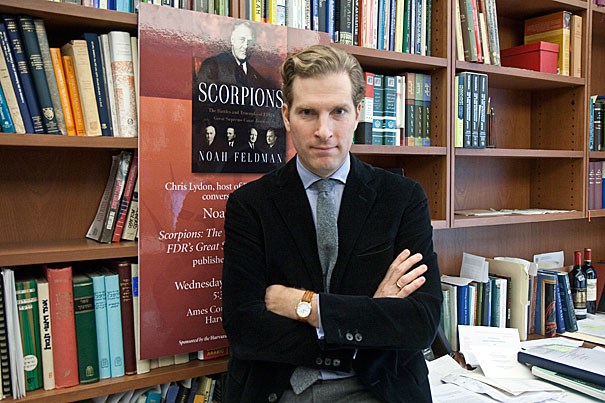
-
Because It Is Wrong: Torture, Privacy and Presidential Power in the Age of Terror
Beneficial Professor of Law Charles Fried and his son, Gregory, chair of Suffolk University’s Philosophy Department, co-author this critique of government-sanctioned torture and surveillance.
